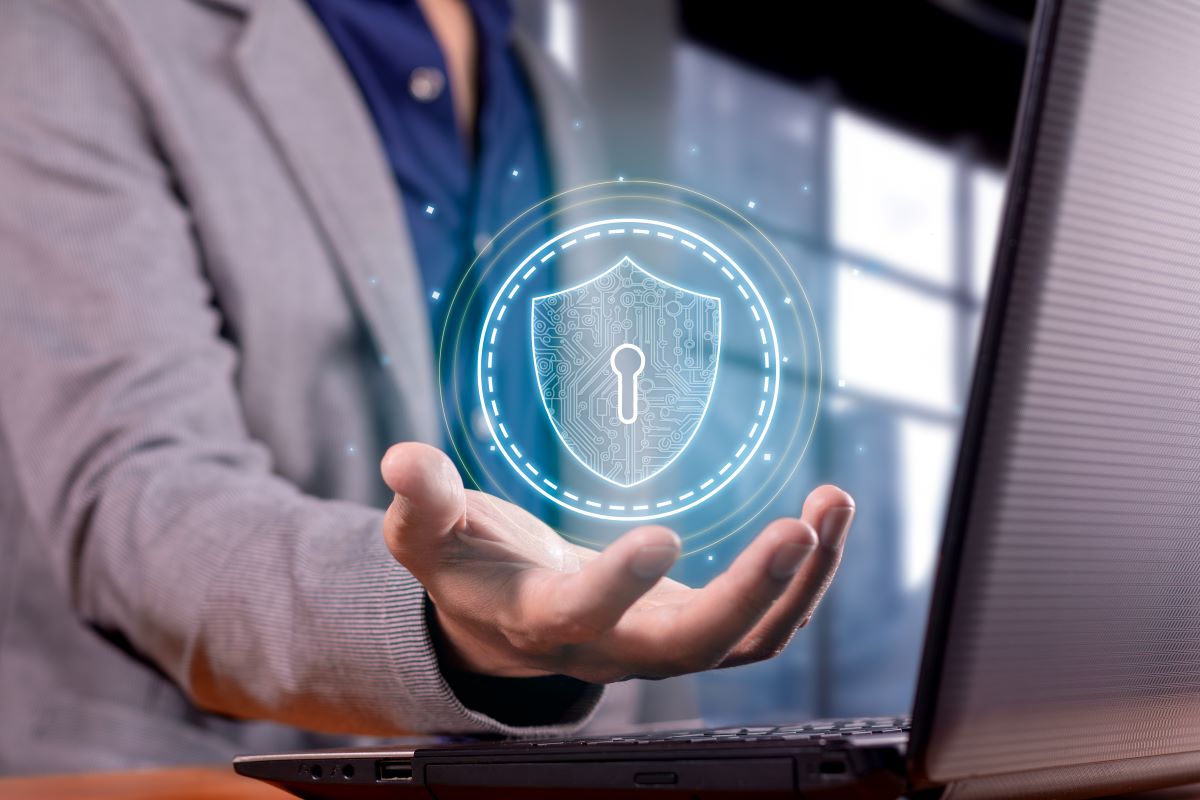Tuesday, March 11, 2025 6 min read Cybersecurity
Why Cyber Security is Important for Businesses
Discover why cyber security is vital for businesses. Learn about various security types, common threats, and how to protect your business from cyberattacks.

Cyberattacks are a constant and an evolving threat. Businesses—from startups to multinational corporations---are prime targets for cybercriminals looking to exploit weaknesses in digital infrastructure. Cyber security isn't just a buzzword or a tech team's concern—it's a critical element that impacts every part of your business. Whether you're dealing with sensitive customer data, intellectual property, or internal operations, cyber security practices can make the difference between safeguarding your business or facing a potentially disastrous attack.
Let’s take a deep dive into why cyber security is crucial for businesses and explore the various strategies you can implement to protect your assets.
What is Cyber Security?
Cyber security refers to the practices, technologies, and processes designed to protect systems, networks, and data from cyber threats. It's all about defending against attacks that could cause harm to your business, whether it’s through data breaches, theft of intellectual property, or disruption of services.
From securing the devices your employees use to ensuring safe cloud storage, a comprehensive cyber security strategy covers various aspects of your digital environment. Let’s break it down further.
Network Security
Your network is the backbone of your business operations. It connects your systems and allows communication between devices. If attackers can infiltrate your network, they can gain access to sensitive data and cause severe damage.
How to protect it:
- Firewalls: Establishing firewalls to block unauthorized access.
- Intrusion Detection Systems (IDS): Monitoring network traffic for suspicious activity.
- VPNs: Encrypting data transfer between employees, especially those working remotely.
Cloud Security
As more businesses migrate to cloud solutions, the risk associated with cloud security becomes even more significant. Sensitive data stored in the cloud is vulnerable to various attacks, including unauthorized access and data loss.
How to protect it:
- Encrypt data stored in the cloud.
- Choose reputable cloud providers who adhere to strong security protocols.
- Implement identity and access management (IAM) to control who can access your data.
Application Security
Applications—whether custom-built or purchased—are often targeted by cybercriminals because they hold valuable data. Vulnerabilities in these apps can provide attackers with backdoors into your business systems.
How to protect it:
- Regularly update applications to patch security flaws.
- Perform vulnerability assessments and penetration testing.
- Implement secure coding practices during development.
Endpoint Security
Endpoint security refers to protecting devices like computers, smartphones, and tablets that connect to your business network. Each endpoint is a potential entry point for a cyberattack.
How to protect it:
- Install anti-malware software on all devices.
- Use strong passwords and multi-factor authentication (MFA).
- Educate employees on phishing and suspicious links.
Information Security
At the heart of cyber security is protecting sensitive business information. This could include customer data, financial records, or intellectual property. Information security prevents unauthorized access to such data.
How to protect it:
- Implement encryption for sensitive data.
- Store data in secure, access-controlled environments.
- Enforce strict data classification and access policies.
Operational Security
Operational security focuses on processes and procedures that ensure your organization’s operations are protected. This includes things like how data is handled, how systems are updated, and the flow of information within the organization.
How to protect it:
- Define clear security policies and protocols.
- Train employees on security best practices and the importance of confidentiality.
- Regularly audit and update security practices to stay ahead of threats.
Mobile Security
Mobile devices have become integral to modern business, but they also bring vulnerabilities. Employees accessing business data via smartphones or tablets can inadvertently expose your company to cyber threats.
How to protect it:
- Use mobile device management (MDM) solutions to control access.
- Enforce strong passwords and remote wipe capabilities.
- Be cautious of public Wi-Fi networks when accessing company data.
Disaster Recovery and Business Continuity
No cyber security plan is complete without a disaster recovery and business continuity strategy. In case of a cyberattack, a well-defined plan ensures that your business can quickly recover and continue operations with minimal downtime.
How to protect it:
- Regularly back up all critical data.
- Have a clear communication strategy in place for employees and customers.
- Establish recovery time objectives (RTO) to ensure business continuity.

Why is Cyber Security for Businesses Important?
It’s simple: your business runs on data. You rely on digital infrastructure to function, whether it’s client information, product details, or employee records. Your business could face significant financial losses, reputational damage, and legal consequences if compromised.
But the importance of cyber security isn’t just about protecting assets—it’s also about building trust with customers, partners, and stakeholders. Demonstrating that you prioritize security makes your business more attractive to potential clients, increasing your competitive advantage.
Benefits from a Technical Standpoint:
- Protection of Sensitive Data: Secure systems ensure that vital business and customer data remains safe from unauthorized access.
- Reduced Risk of Downtime: Strong cyber security practices prevent downtime by averting attacks that could paralyze business operations.
- Improved System Integrity: Regular monitoring and updates to security systems ensure the integrity of your infrastructure, keeping everything running smoothly.
- Compliance with Regulations: For businesses operating in regulated industries, maintaining cyber security ensures compliance with laws like GDPR, HIPAA, and others.
Benefits from a PR Standpoint:
- Customer Trust: Demonstrating a strong commitment to security fosters confidence among your customers.
- Brand Reputation: A solid cyber security reputation positions you as a responsible, trustworthy organization.
- Competitive Advantage: Businesses with robust cyber security attract more clients looking for safe, secure services.

What Will the Impact of a Cyberattack be to a Business?
When it comes to cyberattacks, there’s no one-size-fits-all outcome. However, the repercussions are often severe and multifaceted. The fallout from an attack can range from immediate financial loss to long-term damage to your company’s reputation.
Impact of a Cyberattack:
Financial Losses
Cyberattacks often result in costly ransom payments, legal fees, and the expense of recovering compromised data.
Data Breaches
Losing sensitive information could result in fines, lawsuits, and a loss of trust.
Operational Disruption
Attacks like ransomware can freeze business operations, leading to hours or days of downtime.
Reputation Damage
News of a cyberattack can damage your business’s reputation, eroding customer trust.
Legal and Compliance Consequences
Depending on the nature of the breach, there could be legal ramifications, especially for industries that require strict data handling.

What Kind of Cyber Security Threats Are There?
Understanding the threats your business faces is crucial for building an effective defense strategy. Below are some of the most common threats businesses encounter:
Malware
Malicious software designed to infiltrate and damage systems. It includes viruses, worms, and Trojans.
Viruses
A type of malware that replicates itself and spreads to other systems, often causing significant harm.
Trojans
Disguised as legitimate software, Trojans allow attackers to gain unauthorized access to systems.
Spyware
Software that secretly monitors and collects information from a user’s device.
Ransomware
Malicious software that encrypts data and demands a ransom for its release.
Adware
Unwanted software that delivers intrusive ads, often used as a precursor to more severe attacks.
Botnets
Networks of infected devices used to launch large-scale attacks, like distributed denial-of-service (DDoS).
SQL Injections
A technique used to exploit vulnerabilities in a website’s database system.
Phishing
Fraudulent attempts to obtain sensitive information through deceptive emails or websites.
Man-in-the-Middle Attacks
Attacks where attackers intercept communications between two parties to steal or alter data.
Denial-of-Service Attacks
Overloading a server or network to prevent legitimate access to resources.

How Can You Protect Your Business from a Cyberattack?
Protection is always better than cure. Here are actionable steps to secure your business from potential cyber threats:
Use Multi-Factor Authentication (MFA)
Adds an extra layer of security to your systems by requiring multiple verification methods.
Regularly Update Software and Systems
Keep your software and operating systems up-to-date to close security vulnerabilities.
Educate Employees
Cybersecurity is only as strong as your weakest link. Regular training on best practices helps prevent human error.
Back Up Data Frequently
Ensure that all critical data is backed up regularly to minimize the damage from an attack.
Implement Encryption
Encrypt sensitive data to make it unreadable to attackers in case of a breach.
Monitor Network Activity
Continuously monitor your network for suspicious activity and implement intrusion detection systems.
Conclusion
The digital landscape is full of threats that can jeopardize the stability of your business. A solid cyber security business strategy isn’t just about installing software or setting up firewalls—it’s a comprehensive approach that safeguards your data, your reputation, and your operations. By understanding the various security domains, recognizing potential threats, and adopting proactive measures, your business can stay protected from the evolving world of cybercrime. After all, cyber security is not just a necessity—it’s a critical investment in your business’s future!
Related Article: The Importance of Penetration Testing in Cybersecurity